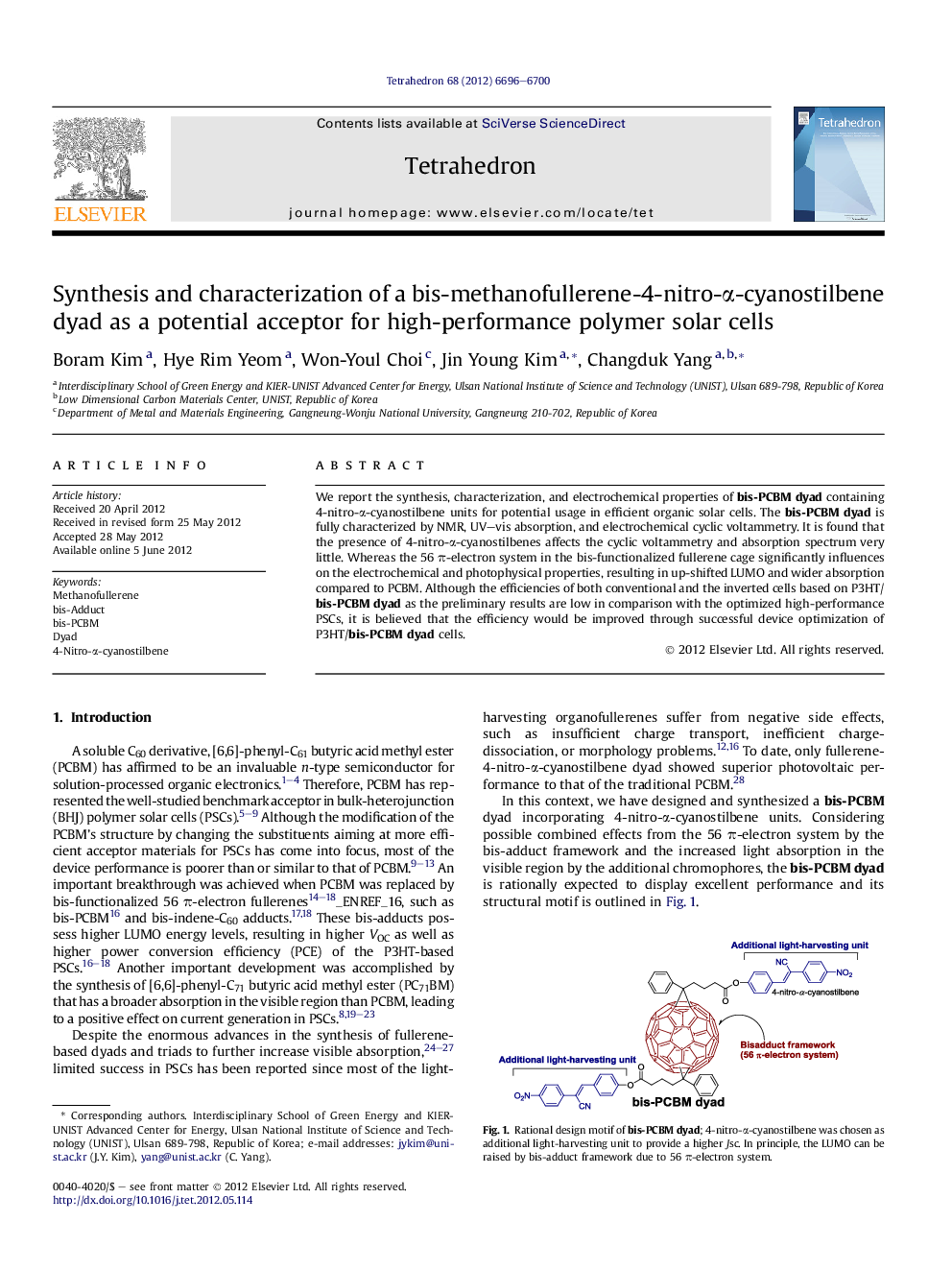| Article ID | Journal | Published Year | Pages | File Type |
|---|---|---|---|---|
| 5218952 | Tetrahedron | 2012 | 5 Pages |
We report the synthesis, characterization, and electrochemical properties of bis-PCBM dyad containing 4-nitro-α-cyanostilbene units for potential usage in efficient organic solar cells. The bis-PCBM dyad is fully characterized by NMR, UV-vis absorption, and electrochemical cyclic voltammetry. It is found that the presence of 4-nitro-α-cyanostilbenes affects the cyclic voltammetry and absorption spectrum very little. Whereas the 56 Ï-electron system in the bis-functionalized fullerene cage significantly influences on the electrochemical and photophysical properties, resulting in up-shifted LUMO and wider absorption compared to PCBM. Although the efficiencies of both conventional and the inverted cells based on P3HT/bis-PCBM dyad as the preliminary results are low in comparison with the optimized high-performance PSCs, it is believed that the efficiency would be improved through successful device optimization of P3HT/bis-PCBM dyad cells.
Graphical abstractDownload full-size image
